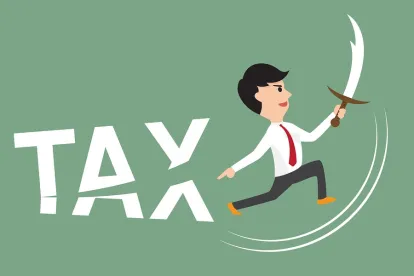In Depth
The Senate’s final tax reform bill, passed in the early morning hours on December 2, 2017, contains several troubling provisions for tax-exempt organizations but represents an improvement over last month’s proposed legislation, which caused concern across the nonprofit sector.
Click here for McDermott’s in-depth coverage of the previous Senate proposals affecting tax-exempt organizations. Several of those provisions did not survive the past few weeks of lobbying and revisions. Here is where tax-exempt organizations stand today under the final Senate bill, as passed by the Senate.
Executive Compensation
- Moving forward: For taxable years beginning after December 31, 2017, tax-exempt organizations will owe a 20 percent excise tax on total compensation exceeding $1 million paid to the five highest paid employees, and on “excess parachute payments” made to certain departing employees.
- Note: This tax, imposed directly on the exempt organization, will be costly for the nation’s largest nonprofits.
- Removed: Any provisions that would have modified the tax rules as to nonqualified deferred compensation under Code Section 457 (both “eligible plans” under Section 457(b) and “ineligible plans” under Section 457(f)) were completely removed.
Unrelated Business Income Tax
- Moving forward: Unrelated business income tax (UBIT) must now be calculated separately for each business activity; losses from one activity can no longer offset income from another.
- Note: This provision, which places tax-exempt organizations at a disadvantage compared to their for-profit counterparts, may prompt nonprofits to incorporate taxable subsidiaries to aggregate unrelated business activities.
- Removed: The income derived from licensing names and logos of tax-exempt organizations will not be subject to UBIT as previously proposed.
Excise Taxes
- Moving forward: Private colleges and universities will owe a new 1.4 percent excise tax on their net investment income if the aggregate fair market value of their assets (other than those assets that are used directly in carrying out the institution’s exempt purpose) exceed $500,000 per student (raised from $250,000 in the earlier proposal) and certain other criteria are met.
- Note: These thresholds take into account the investment portfolio of all organizations under common control, potentially subjecting related entities to this new tax. This “control” rule could have implications for colleges and universities that have related organizations with significant donated assets, such as academic medical centers.
- Removed: None of the Senate’s previous proposals to rewrite the intermediate sanctions standard and expand its application survived in the final bill.
- The “rebuttable presumption of reasonableness” (and the protection it provides) remains intact.
- The intermediate sanctions rules will not be expanded to cover Section 501(c)(5) and 501(c)(6) organizations.
- Organization managers can continue to rely on qualifying written professional advice as an affirmative defense to personal excise tax liability.
- Investment advisors and athletic coaches will not be treated as per se “disqualified persons” subject to the intermediate sanctions rules.
- Intermediate sanctions excise taxes will continue to be imposed on disqualified persons and managers under appropriate circumstances, but not on the exempt organization itself as the Senate previously proposed.
Tax-Exempt Bonds
- Moving forward: Bonds issued to “advance refund” other bonds will no longer produce tax-free interest for bondholders. Tax-exempt financing for Section 501(c)(3) organizations is otherwise unaffected.
- Note: Section 501(c)(3) hospitals, colleges, universities and others have been closely following tax reform as it relates to tax-exempt bonds, since the initial House bill released in early November proposed to repeal private activity bonds entirely, thereby removing a critical source of capital for these types of nonprofit organizations. While the repeal of advance refunding bonds limits refinancing opportunities, it is less drastic than the earlier proposal to eliminate tax-exempt financing for these organizations.
Changes Affecting Athletics
- Moving forward: College football fans may no longer get a tax break for their ticket costs. The final Senate bill repeals the existing (partial) charitable deduction for a payment to a college or university in return for athletic event tickets or seating rights.
- Removed: Professional sports leagues remain eligible for tax-exempt status; the earlier Senate proposals had threatened to repeal this exemption.
The final legislative outcome is not yet known. The House can now either vote to approve the final Senate bill as is, or the two houses of Congress can work in conference committee to agree on a revised bill reconciling their differences. A strong push is being made to finalize tax reform by year-end. Significant year-end planning considerations may exist for tax-exempt entities.







 />i
/>i

